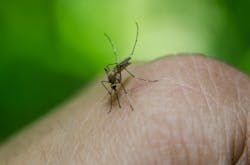Ahead of World Malaria Day, marked annually on April 25, the World Health Organization (WHO) launched a new initiative that aims to halt transmission of the disease in 25 more countries by 2025.
Of the 87 countries with malaria, 46 reported fewer than 10,000 cases of the disease in 2019 compared to 26 countries in 2000. By the end of 2020, 24 countries had reported interrupting malaria transmission for 3 years or more. Of these, 11 were certified malaria-free by WHO.
Most countries that reach zero malaria have strong primary healthcare systems that ensure access to malaria prevention, diagnosis and treatment services, without financial hardship, for everyone living within their borders – regardless of nationality or legal status.
Robust data systems are also key to success, together with strong community engagement. Many countries that eliminate malaria have relied on dedicated networks of volunteer health workers to detect and treat the disease in remote and hard-to-reach areas.
Through the E-2020 initiative, launched in 2017, WHO has supported 21 countries in their efforts to get to zero malaria cases within the 2020 timeline. A new WHO report summarizes progress and lessons learned in these countries over the last 3 years.
According to the report, 8 of the E-2020 member countries reported zero indigenous cases of human malaria by the end of 2020: Algeria, Belize, Cabo Verde, China, El Salvador, the Islamic Republic of Iran, Malaysia and Paraguay. In Malaysia, the P. knowlesi parasite, normally found in monkeys, infected approximately 2,600 people in 2020.
A number of other countries made progress: Timor-Leste reported only 1 indigenous case, while 3 other countries – Bhutan, Costa Rica and Nepal – reported fewer than 100 cases.
Building on the successes of the E-2020, WHO has identified a new group of 25 countries that have the potential to stamp out malaria within a 5-year timeline. Through the E-2025 initiative, these countries will receive specialized support and technical guidance as they work towards the target of zero malaria.

